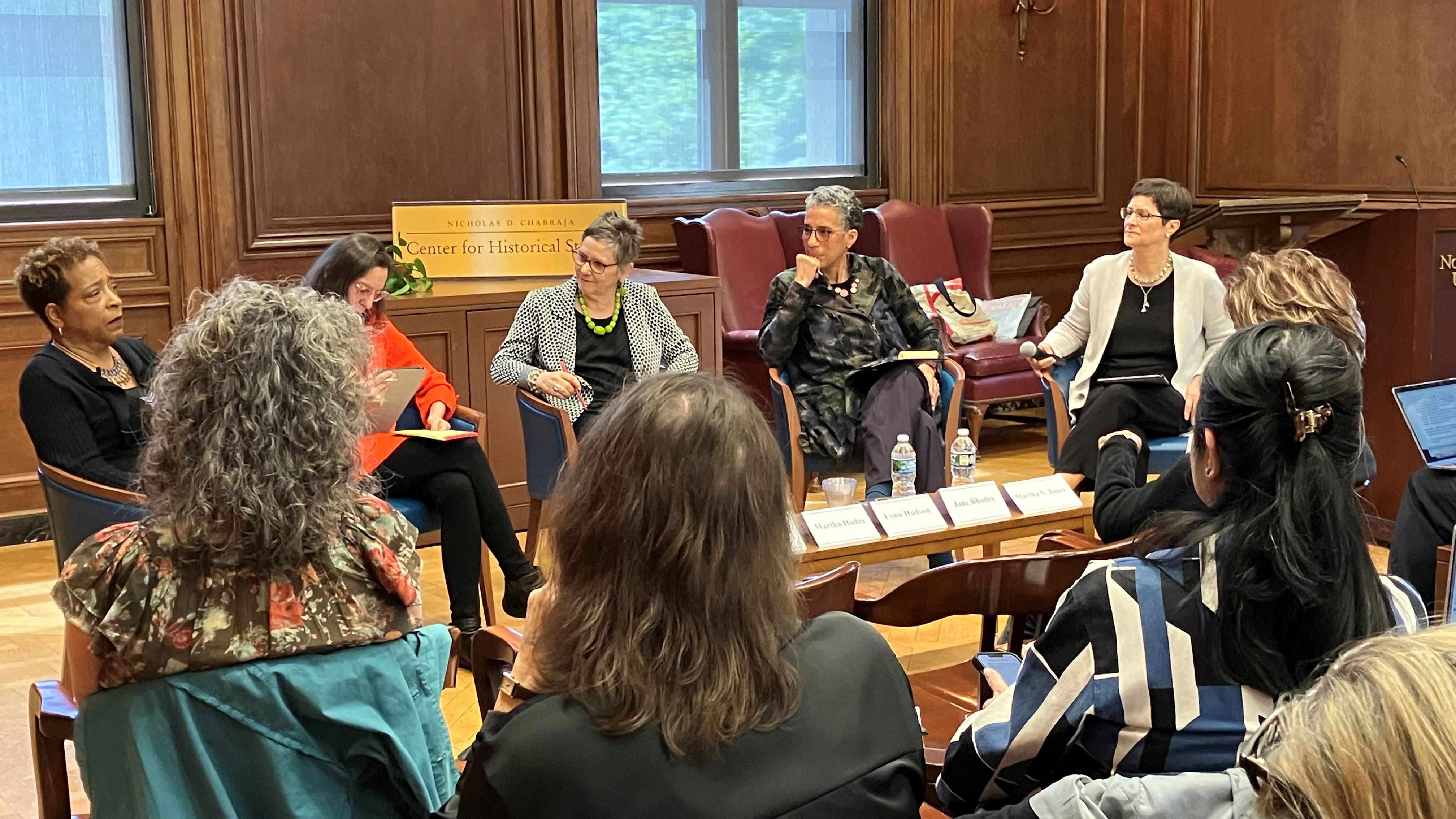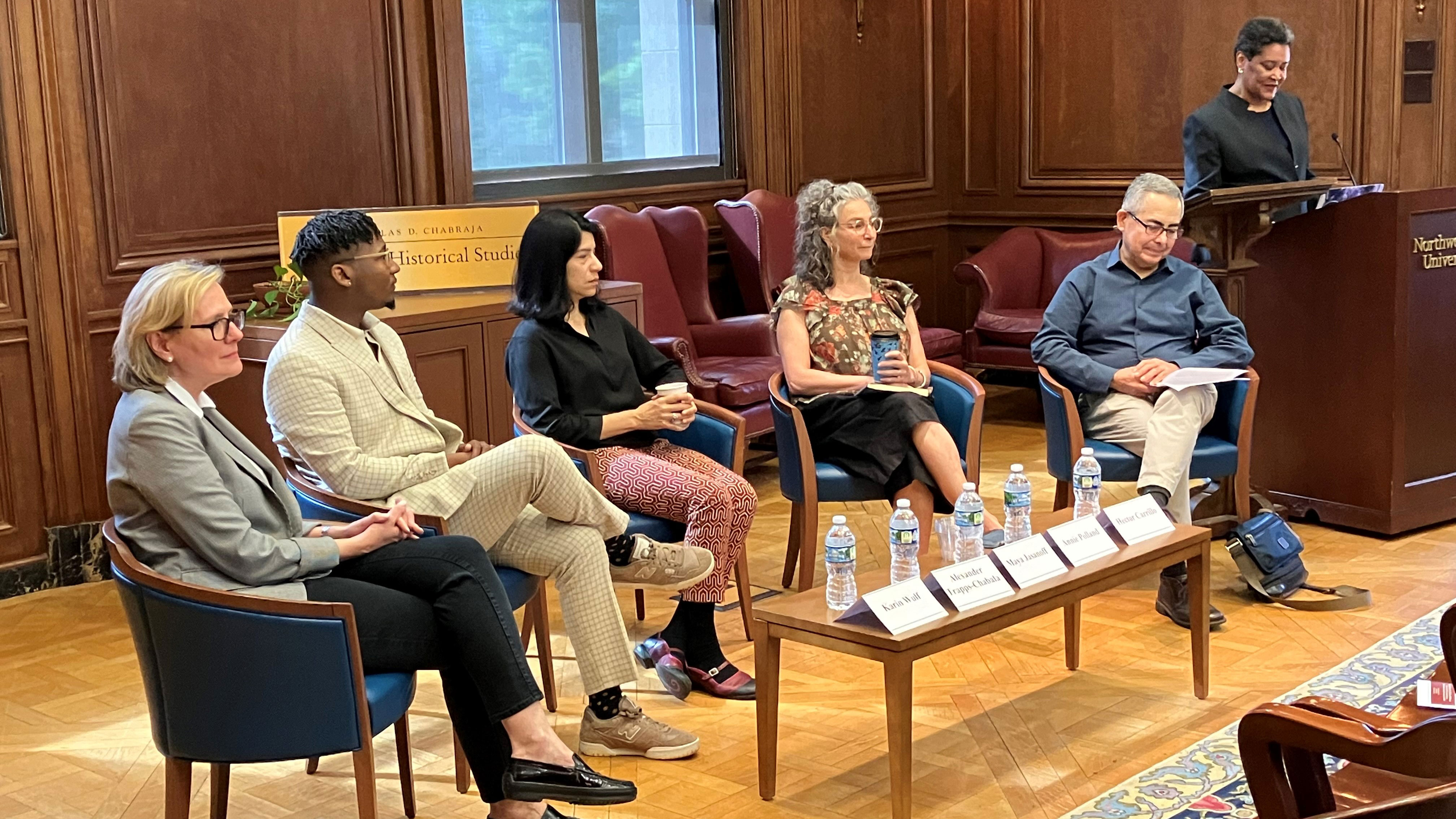The Stories in Our Histories: Historians Confront Themselves
A CCHS Conference -
The Stories in Our Histories: Historians Confront Themselves
By Leslie Harris
In May 2024, Leslie Harris convened the CCHS conference "The Stories in Our Histories: Historians Confront Themselves," with the critical assistance of CCHS postdoc Gil Engelstein and the enthusiastic support of CCHS director Amy Stanley, interim director Ben Frommer, and assistant director Elzbieta Foeller-Pituch. The conference welcomed academic historians who have turned to their own family and personal histories in order to explore themes relevant to the discipline of history.
On the conference’s first night, a keynote conversation featured three award-winning creative writers who deeply and critically engage with history: Natasha Trethewey, 19th Poet Laureate of the United States and Board of Trustees Professor of Creative Writing at Northwestern, and author of a number of books of poetry and memoir that interrogate her own and her family’s life in the Jim Crow, Civil Rights and contemporary U.S. South; Ava Chin, author of Mott Street: A Chinese American Family's Story of Exclusion and Homecoming; and Clint Smith, poet and journalist for The Atlantic and author of How the Word Is Passed: A Reckoning With the History of Slavery Across America.

The next day, four panels of historians at various stages of researching, writing and publishing works spanning a range of geographic and chronological topics, discussed the creative excitement and challenges of studying themselves, family members and friends as historical subjects. For many, it was their first time participating in a large group of professional historians who were engaged in such projects. They questioned what these projects meant for the historical discipline: History as literature? History as social science? Objectivity? Subjectivity? And of course, why were they driven to write about themselves and their families?

For some, such projects seemed a natural way to investigate difficult, even tragic personal circumstances—to use the tools of research and writing to make sense of what had happened. For many, centering one’s own experiences and those of family members and friends demanded a degree of humility and vulnerability that was different from researching and writing about people at a more distant remove.
Some participants had not known they were part of a larger community that was engaged in these questions. A closing commentary by Stéphane Gerson of New York University and Kendra Field of Tufts University -- both of whom have published books and articles in major academic journals (including the American Historical Review and The Journal of Modern History) and have convened important conferences on this topic -- clarified that the group was part of an organic groundswell of creativity in the historical profession. Indeed, throughout the gathering, participants surfaced the names of other scholars currently engaged in similar projects .
The challenge of writing itself was one to which the group returned again and again, for many of the projects aim for new heights of beautiful, accessible prose even as they engage complex topics. As the gathering drew to a close, participants exchanged promises to keep in touch as projects developed and were published.
The conference represented an exciting trend that many historians believe will resharpen our disciplinary tools, even as the published work invites a wider readership that seems to have an unending interest in family histories, memoir and genealogy.
